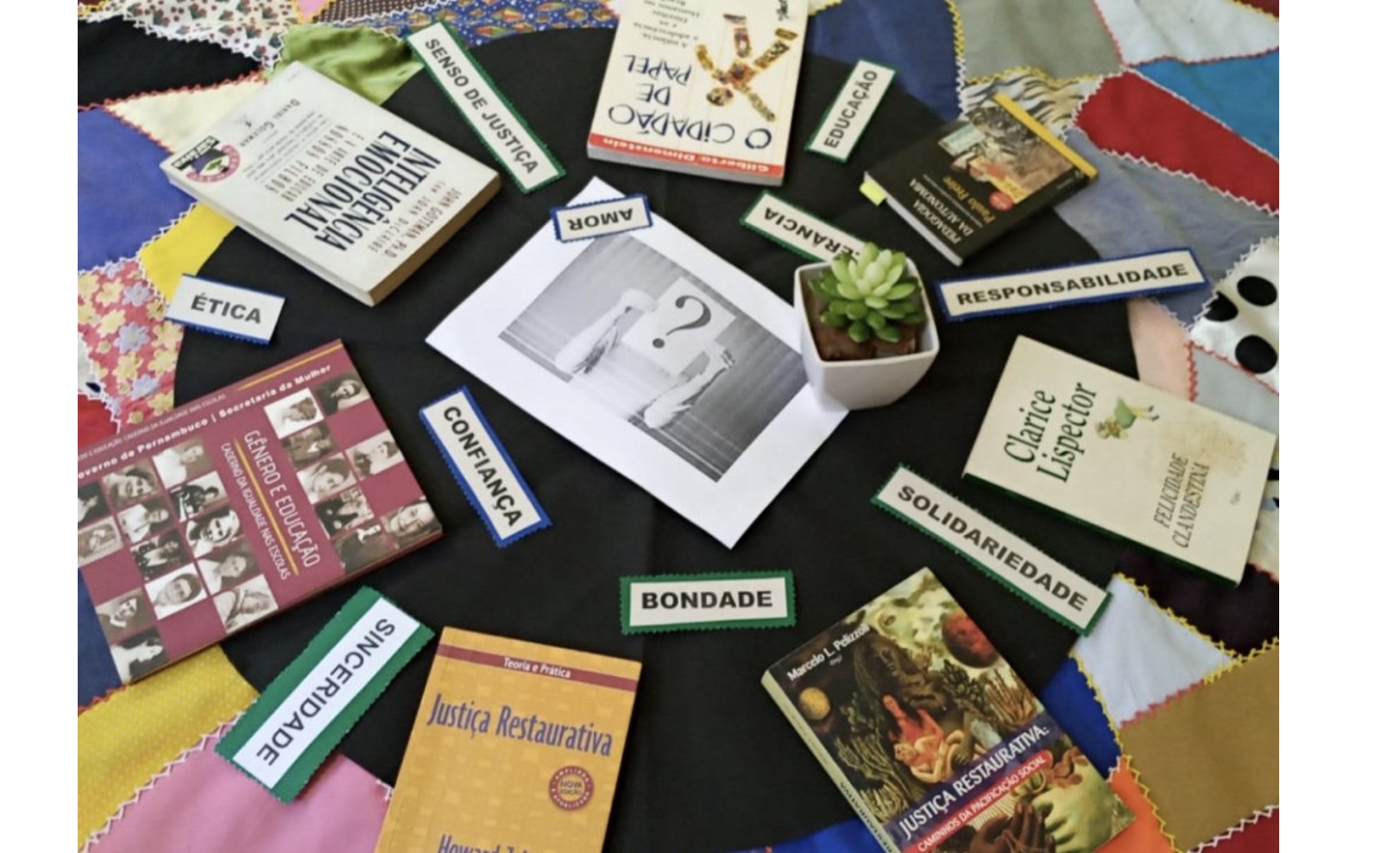. . DEMOCRATIC PARTICIPATION . .
An article from the blog of Didi Galvão
Restorative justice actions, aimed at promoting a culture of peace in socio-educational units in Pernambuco, had good results in 2021. During this period, 77 circles of restorative justice were carried out with 458 participants, including adolescents and young people in compliance with socio-educational measures and employees of the Socio-Educational Service Foundation (Funase), an institution linked to the Department of Social Development, Children and Youth (SDSCJ) of Pernambuco.

Image: Divulgação/Funase
The face-to-face activities took place in a manner adapted to the health guidelines resulting from the Covid-19 pandemic, with smaller groups of participants, in accordance with the protocol established by Funase. The training processes of multipliers, on the other hand, prioritized the virtual modality. In 2022, the idea is to continue expanding the work of the Center for Restorative Justice (NJR), a group of public servants established in 2019 with the objective of disseminating these practices in the socio-educational system in Pernambuco.
(article continued in right column)
Restorative justice, What does it look like in practice?
(article continued from left column)
Restorative Justice addresses issues such as conflict mediation and non-violent communication, encouraging accountability processes. Marcela Mariz, coordinator of the NJR, believes that the gains have been significant. “We see important results for those who participate. Compliance with the socio-educational measure is not easy. Welcoming, strengthening and empowering are essential actions. And Restorative Justice presents itself as a great tool for that”, she says.
The Socio-Educational Service Center (Case) Jaboatão dos Guararapes, in the Metropolitan Region of Recife, is one of the Funase units where restorative practices are implemented and in progress. “At first, some teenagers show resistance, but later they realize that that moment is theirs and that’s when they can reflect, tell stories and build an internal space for this practice”, explains psychologist and reference technician Cristiane Campelo.
In 2021, training courses were held for managers and technicians on the topic “Restorative Justice in the Socio-Educational System”, with the promotion of Funase in partnership with the Training Center for Public Servants and Employees of the State of Pernambuco (Cefospe). Trainings on coping with LGBTphobia and its parallels with restorative practices were also guided. Another highlight was NJR’s participation in the 1st Latin American Journey “Justice and Restorative Practices: reflections, tools and good practices”, an event held in September, remotely, based in Argentina.